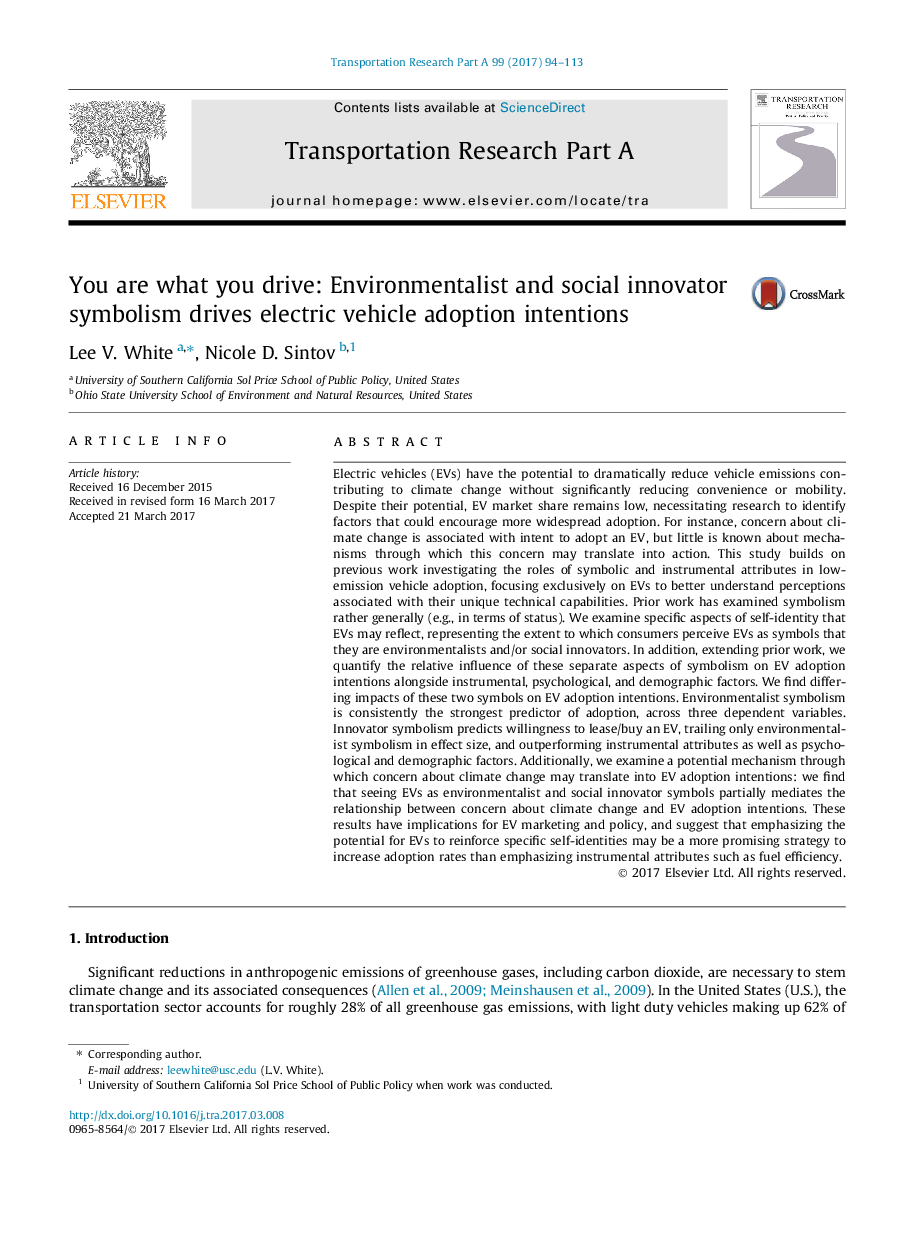| Article ID | Journal | Published Year | Pages | File Type |
|---|---|---|---|---|
| 4929114 | Transportation Research Part A: Policy and Practice | 2017 | 20 Pages |
Abstract
Electric vehicles (EVs) have the potential to dramatically reduce vehicle emissions contributing to climate change without significantly reducing convenience or mobility. Despite their potential, EV market share remains low, necessitating research to identify factors that could encourage more widespread adoption. For instance, concern about climate change is associated with intent to adopt an EV, but little is known about mechanisms through which this concern may translate into action. This study builds on previous work investigating the roles of symbolic and instrumental attributes in low-emission vehicle adoption, focusing exclusively on EVs to better understand perceptions associated with their unique technical capabilities. Prior work has examined symbolism rather generally (e.g., in terms of status). We examine specific aspects of self-identity that EVs may reflect, representing the extent to which consumers perceive EVs as symbols that they are environmentalists and/or social innovators. In addition, extending prior work, we quantify the relative influence of these separate aspects of symbolism on EV adoption intentions alongside instrumental, psychological, and demographic factors. We find differing impacts of these two symbols on EV adoption intentions. Environmentalist symbolism is consistently the strongest predictor of adoption, across three dependent variables. Innovator symbolism predicts willingness to lease/buy an EV, trailing only environmentalist symbolism in effect size, and outperforming instrumental attributes as well as psychological and demographic factors. Additionally, we examine a potential mechanism through which concern about climate change may translate into EV adoption intentions: we find that seeing EVs as environmentalist and social innovator symbols partially mediates the relationship between concern about climate change and EV adoption intentions. These results have implications for EV marketing and policy, and suggest that emphasizing the potential for EVs to reinforce specific self-identities may be a more promising strategy to increase adoption rates than emphasizing instrumental attributes such as fuel efficiency.
Related Topics
Physical Sciences and Engineering
Engineering
Civil and Structural Engineering
Authors
Lee V. White, Nicole D. Sintov,
